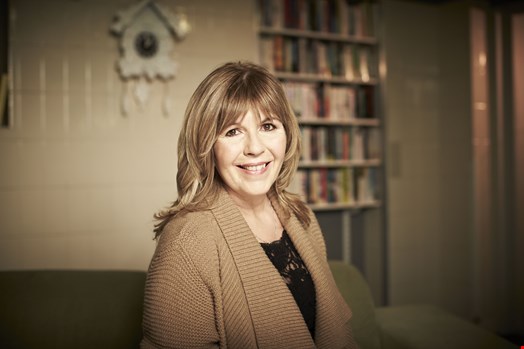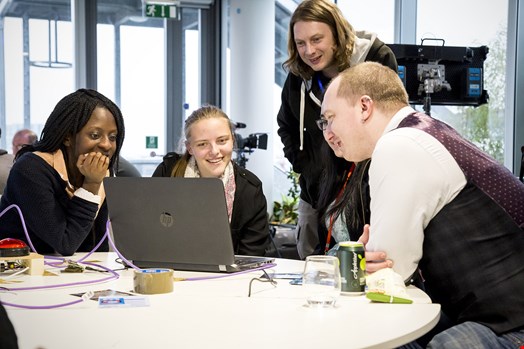
One reason cited for a lack of interest in science and technology in society has been a lack of education on television, and I recently had the opportunity to talk to one of the presenters of a show that taught a generation – Tomorrow’s World’s Maggie Philbin.
Maggie was a presenter of the show for 11 years and in recent years she has co-founded and run the initiative Teen Tech, who run one day events to help young people and teenagers see the range of career possibilities in science, engineering and technology.
The events take place at venues across the UK and at each event, 300 pupils from 30 different schools benefit from hands-on exhibits and challenges run by leading organizations.
Maggie explained that the idea is to help young people understand the opportunities in the industry, and work with companies. “Everything is based on hands on engagement with young people,” she said. “We run large scale events with 300+ kids and have an awards scheme as when they are inspired and have somewhere for them to take their energy and with the support of a mentor, they come up with ideas to make life easier."
“The purpose for the awards is for students to make contacts so they understand the opportunities out there and their own potential. Those two things are not there and young people don’t know what they can do and we help them understand what will suit them for jobs. What we do is to help them make connections.”
The initiative works with children from ten years up and into the first two years of secondary school, and its awards schemes are for 11-16 and 16-18 ranges. “Within the awards scheme, the kids come up with their own ideas to make life easier, better or simpler and these range from safety and security to the future of food, and we reach out to kids who have not thought about a career in tech,” she said.
“At the end they have a better sense of what the world of technology looks like. One person said it is all about people and didn’t realize until they got engaged with it, and became an ambassador for girls getting engaged with it. That is what we are interested in achieving.”
So the concept is launched and successful, and now it has branched into the world of cybersecurity, as Maggie said it is never mentioned as a career option. “It is not on their horizon and that is a shame as what we try to do is reach out to kids and ask them if they like gaming or being inventive, and that’s how they come forward.”
Maggie said that the teenage participants commented on the different people involved and with 300 kids coming along, there is a strong focus on IoT and that is expanding to cybersecurity. So is this new? “Yes, and we have had some representation before in that people have brought things into events and we had something called the Insight Zone for companies to give an indication on what they do in technology, but we had not done something like this on a larger scale,” she said.
One person who has participated in the cybersecurity events is consultant Dr Jessica Barker who explained that companies like BT, Raytheon and Symantec hosted challenges, while she gave a talk to the whole group to put it all into context.
“Lots of the young people there hadn't thought about IT or cybersecurity as a career before that day so I told them what it's all about, went through the different types of threat and some of the key challenges in the industry, and tried to give them a better understanding of what the industry is like and what it means to work in cybersecurity.”
TeenTech reach out to schools and the students can put themselves forward, and Maggie explained that for the most part it is extra-curricular, while in Scotland it is part of the S2 curriculum and they are talking to exam boards who have identified it as a good way to take things to the next level. “Next year we’ll reach out to students at GCSE or A-level who may want to do something on security and come up with ideas that have commercial value.”

